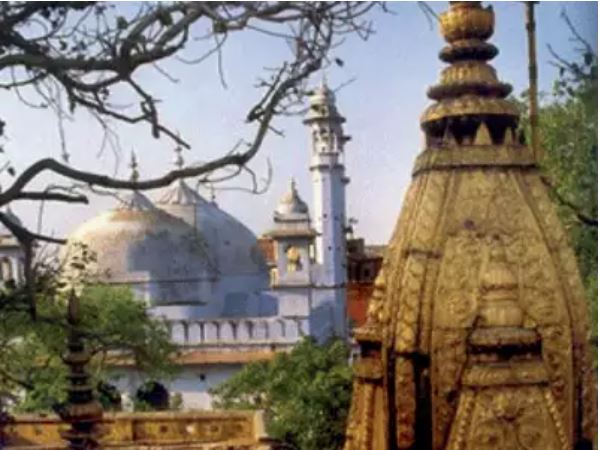A local court in Varanasi on Thursday dismissed an application filed by the Anjuman Masjid Committee, the committee managing the Gyanvapi Mosque in Varanasi, which challenged the maintainability of a title suit praying to hand over the possession of the Gyanvapi Mosque premises to Lord Vishweshwar Virajman (Swayambhu) and others.
The Fast Track Court of Civil judge (senior division) Mahendra Kumar Pandey, while dismissing the plea filed under Order 7 Rule 11 CPC, posted the case for further hearing on December 2.
Earlier on October 27, the Court had reserved its verdict in the matter.
The title suit for Lord Vishweshwar Virajman (Swayambhu) was filed through their next-friend and international general secretary of Vishwa Vedic Sanatan Sangh, Kiran Singh.
It sought directions for handing over the possession of the entire Gyanvapi complex to the Hindus, along with permission for the plaintiffs to offer prayers to Swayambhu Jyotirlinga Bhagwan Vishweshwar and the purported ‘Shiva Linga found inside the Mosque premises on May 16.
Earlier on October 27, the Court had reserved its verdict in the matter.
The suit is not connected with the one pending before the Varanasi Court filed by five Hindu women worshippers, seeking an all-year-round rights to pray inside the Gyanvapi Mosque premises.
The petitioners were represented by Advocates Shivam Gaur, Anupam Dwivedi, and Man Bahadur Singh.
Earlier in September this year, Varanasi District Judge A.K. Vishvesha had dismissed an application filed by the Anjuman Intezamia Masjid Committee, challenging the maintainability of the suit filed by five Hindu women seeking the right to worship Hindu deities within the Gyanvapi mosque premises all-year round.
Stating that the plaintiffs had a right to prove their averment by cogent evidence, the court had ruled that the suit was not barred under the Places of Worship Act, 1991; the Waqf Act, 1995; or the UP Shri Kashi Vishwanath Temple Act, 1983.


